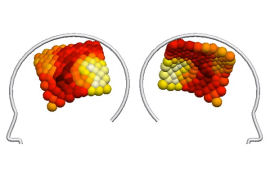
Social and physical environments can have a profound effect on metabolic processes, say the scientists behind rodent experiments that showed how an engaging social environment can burn more fat than a treadmill.
Researcher Matthew During, of Ohio State University, explained that when mice are given a more engaging place to live with greater opportunities for social stimulation, some of their energy-storing white fat is transformed to energy-burning brown fat. “As a result, the animals expend more energy and lose weight even as they eat more. I’m still amazed at the degree of fat loss that occurs,” he said.
The study compared “standard” laboratory mice that live, what might be considered, a couch potato existence. They are kept comfortable with an endless supply of food and water, but they don’t have much of anything to do. In the enriched environment, however, the subject mice live in larger groups of 15 – 20 animals. They have more space as well as mazes to navigate and toys to play with.
“After four weeks in the enriched environment, the animals’ abdominal fat decreased by fifty percent,” added co-researcher Lei Cao, also of Ohio State. “We often think of stress as a negative thing, but some kinds of stress can be good for your health. The enriched housing is more taxing for the animals as they have to deal with each other and with a more complex environment.” Cao believes that the challenging environment is responsible for the increase in brown fat.
Fat comes in one of two types: white or brown. White fat is the kind we generally try to keep off as it stores all those extra calories. Brown fat burns energy and is perhaps best understood for its role in keeping babies warm, but scientists have now realized that adults do retain active brown fat. We can be made to produce more brown fat through exposure to cold or activation of the sympathetic nervous system. The new study suggests a more engaging environment is another, perhaps more effective path to increasing brown fat.
The researchers speculate the new findings may offer insights into the connection between loneliness and ill health. “Loneliness is a profound factor. Social engagement is very important. It’s not just a sedentary lifestyle and high calorie foods, but an increasing lack of social engagement as online networking and social media have replaced more dynamic, face-to-face social interactions,” the study concludes.
Related:
Social interactions alter gene expression
Childhood eating disorders skyrocketing
Big Brain Evolved Through Social Problem Solving


















Comments are closed.